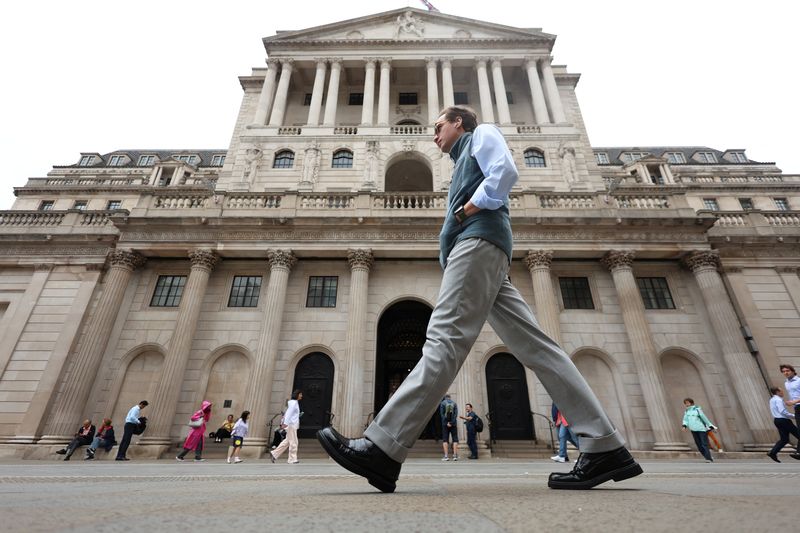By David Milliken
LONDON (Reuters) -Bank of England Chief Economist Huw Pill said on Friday inflation pressures were likely to weaken further but there was a risk that future interest rate cuts could be delayed if higher inflation partly reflected longer-term behavioural shifts.
Pill was one of four BoE policymakers who voted against Thursday’s decision to cut interest rates to 4% from 4.25%, the BoE’s fifth rate cut since August 2024.
“There’s still a little bit further downward to go with Bank Rate. I think the pace at which those downward moves perhaps go forward is a little bit less clear than the pace that we’ve seen over the last year,” Pill said in an online presentation to businesses that take part in BoE surveys.
British consumer price inflation rose to 3.6% in June. The BoE on Thursday revised up its forecast to show it hitting 4% in September and not returning to its 2% target until the second quarter of 2027.
Pill said that upward risks to inflation had risen at the two to three-year horizon which the Monetary Policy Committee focuses on when it sets rates.
British inflation has spent almost all of the past four years above its 2% target, largely due to knock-on effects from Russia’s full-scale invasion of Ukraine and to a lesser extent the pandemic impact on Britain’s labour market.
MPC members differed on the extent to which recent higher inflation was due to increased global food prices, one-off rises in regulated water bills and similar changes, or whether the above-target inflation was starting to become entrenched in domestic businesses’ price-setting and how wages are negotiated.
“If that’s more the driver of this increase in the upside risk to inflation, that might lead us to … have to question whether the pace at which we’re reducing Bank Rate over the last year, a pace of one quarter-point cut every quarter, is that sustainable?,” Pill said.
“I think that’s kind of where more of the dissenting members focus, the members of the committee who were voting ultimately to hold rates at 4.25% yesterday,” he said.
Investors trimmed their expectations for BoE rate cuts after Thursday’s announcements by the central bank and are not fully pricing in a next reduction until February’s meeting, compared with December previously.
(Reporting by David Milliken and William Schomberg; Editing by Alison Williams)
